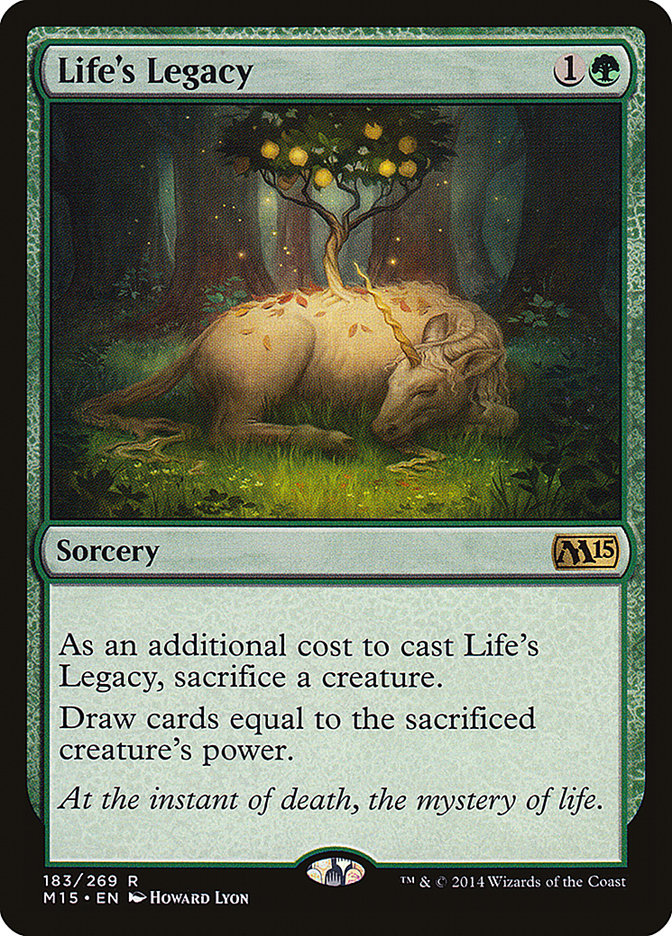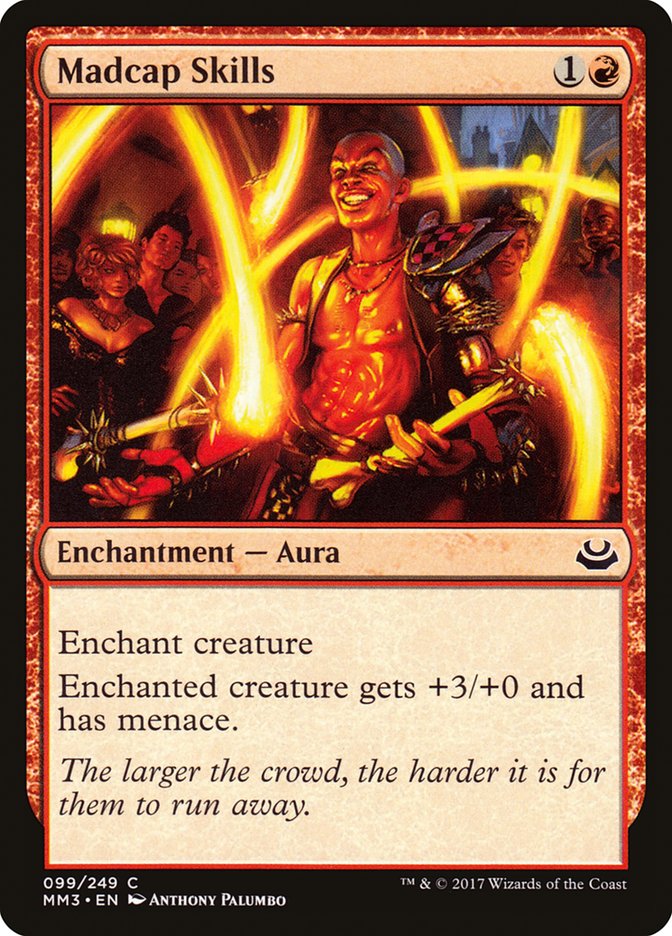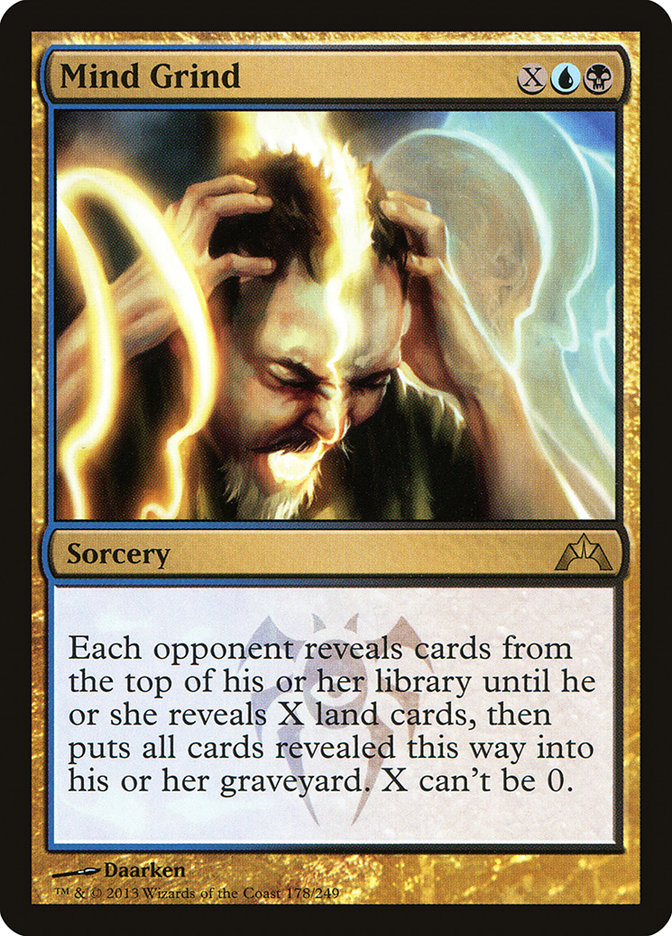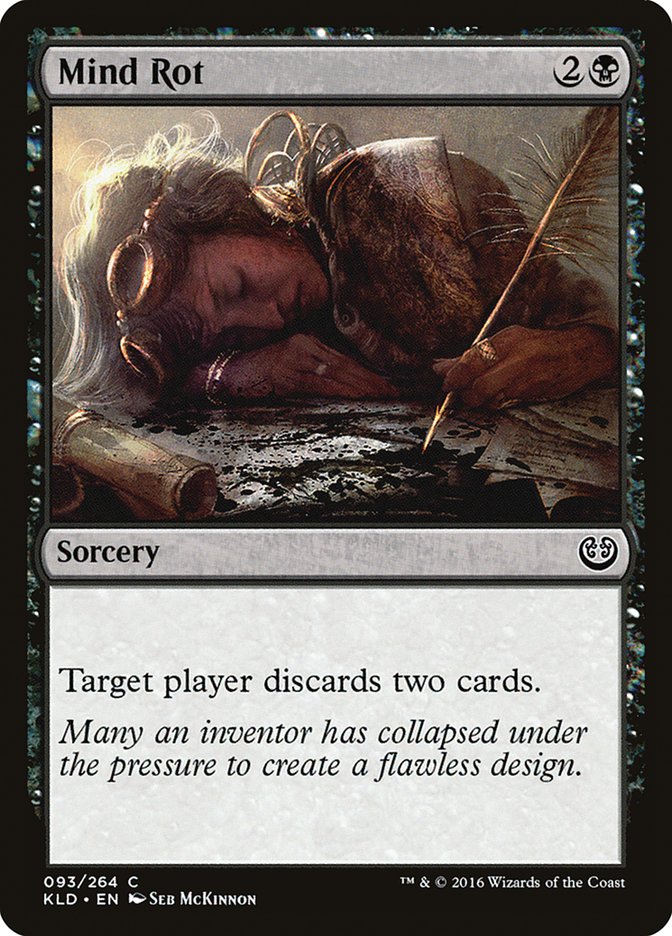February has been a long month. So much has been happening in the Magic world, in a lot of ways, it feels like it’s just been flying past me. In spite of the fact that my articles are the highlight of my week, it’s impossible to put words to paper. The cause of the writer’s block I’m dealing with isn’t hard to pinpoint, either. Whenever I write an article, it’s generally relevant to what I’m doing: the tournament I’m preparing for, a recent lesson learned through an event, and so on.
Death’s Shadow is Splinter Twin? On the heels of a tournament finish. Taking a Breather? Burnout I was dealing with as a result of grinding. I could draw the lines between my articles and real-life happenings for an entire article, but that isn’t particularly productive. People are here for Magic! People are here to learn. There is a bit of an issue…
I haven’t been to a tournament in a month. In the way of preparation, the next tournament I’m attending is #SCGWOR, and I’ve already told the world what the best deck in Legacy is. In an effort to reverse-engineer an article topic out of thin-air, it came to me:
Write about the things that people don’t (or won’t) write about.
For those who might be unfamiliar with the jargon, “The Grind” is what people call the endless stream of Magic events that make up hyper-competitive players’ lives. A lot of it is glamorous; a lot of it isn’t.
In just the year or so that I’ve been on the grind, I’ve seen people who are quite gifted at Magic break themselves and run their love for the game into the ground, all for the sake of “Living the Dream.” Traveling three or more weekends every month isn’t doable for everyone. Different people can handle varying levels of stress, commitment, and travel that are all part of the Magic Grinder package deal.
Travel Time
It’s easy to write off all of the travel time associated with going to and from SCG Tour events, Grand Prix, and smaller tournaments, but until you start setting an entire day of your life aside every week to compensate for the amount of time spent in cars and airports, it’s hard to grasp. Plugging the amount of time I spent traveling to the SCG Tour stops that I attended last weekend into a calculator tells me that I spent around 560 hours between my apartment complex and the tournament city I planned to compete in. It’s hard for me to wrap my head around that.
This isn’t all bad. For many, myself included, these long-distance trips can be cathartic. Sitting alone in a vehicle for hours at a time leads to a lot of deep thought, soul searching, and even self-discovery. Life is hard, and for a lot of people, it’s hard to tell what you want.
Something about fighting sleep behind the wheel of somebody else’s car in a city you’ll never see again really puts life into perspective. At the beginning of 2016, I had no idea where I stood on a lot of parts of my life. Do I want kids? What do I want to be doing for a living in 2025? Why am I so dedicated to Magic? Today, I know the answers to most of these things.
Life is still blurry. I didn’t need Magic to figure all of these things out, but it begs the question: when would I have really drilled myself on these issues? Life is full of distractions, and without the brutal honesty that comes from extended isolation in a vehicle, it’s hard to say.
The amount time on the road brings an array of tricks that come in handy while traveling. Did you know that most Love’s Travel Stops have (nice) showers? Which states have the cheapest gas? Robert Wright and I even came up with a system that allowed us to drive almost indefinitely: drive three hours while the other sleeps for three hours, alternating until arriving at the destination.
Differences in Skill Level
It’s hard to appreciate how good some people are at Magic until you see it firsthand, week in and week out. Tom Ross sees things in ways that other people just don’t. Luis Scott-Vargas can solve battlefield states better than anyone else in the history of Magic. Brad Nelson has been embarrassing the rest of the field with his metagame calls for half a decade now. Todd Anderson shows up 25% less than people he’s competing with, and still crushes them in points races.
These things aren’t coincidences, and while following points on a board can be easy, it’s hard to really comprehend how much skill is required to do these things consistently. The primary cause for this gap in skill is more obvious than one might think: they’ve played more Magic than most people, and in a meaningful way.
Michael Majors wrote an article on proper playtesting just under a year ago, and it holds up well. Anybody who has seen Luis Scott-Vargas stream knows how well he can multi-task and play games on Magic Online. That doesn’t happen overnight. He’s played tens of thousands of games and reached a point where he was so comfortable with the program that he could dedicate brain power to multiple games; this was in part due to the fact that so many aspects of the program (and Magic) were automatic. He didn’t even have to think about it.
Many people talk about how subtle the differences between average players and good players are, and I’d wager that this is incorrect. The single instances might seem subtle, but there are dozens of differences over the course of a tournament. Every game that is sideboarded differently. Every time a spell is cast or sandbagged for posturing purposes. Games of Magic are won and lost on the back of percentage points, and all of the changes add up to significant shifts in advantage, one way or the other.
While traveling for Magic, the not-so-distinct changes become more and more obvious. The axiomatic fingerprints of a player on a decklist become easier to spot. Lines of play become easier to connect to a player.
The more you compete, the more you want to succeed. The more you are driven to succeed, the more you immerse yourself in Magic, through play and community. The more you immerse yourself in Magic, the more you are able to consciously acknowledge the subtle aspects of Magic that make the game and its players so unique.
Grinding Is Expensive
It’s actually pretty hard to continue traveling to events without a reasonably paying job, some sort of endorsement deal, or an above-average number of tournament finishes. To put things in perspective, my writing gets me into SCG Tour events for free, I get hotel perks through a friend, I drive a car that gets approximately 25 miles per gallon, I have a friend who will lend me most of the cards that I need (thanks, Richard!), and I still find myself unable to attend some events due to the associated costs. This is all with me finishing in the money consistently enough to maintain a spot on the SCG Leaderboard for over a year now.
I’m lucky to have all of these opportunities that afford me the privilege of traveling, but for a lot of people, it isn’t that easy. Hotel, gas, food, and tournament entries on a given weekend tend to add up to $150 or more. Factoring tournament winnings into that equation isn’t always reliable. No matter how good you are, eventually you’re going to have a cold streak. Putting yourself in a position in which you can’t pay bills isn’t safe, and it’s heartbreaking to see someone at the vendor table after an event because not making cash means that they can’t pay their electric bill.
If grinding is something that you are truly considering, as in, you are thinking of doing more than one or two events every few months, you need to factor in if it’s something you can realistically afford.
Magic Isn’t Always a Skillful Game
Sometimes you’re going to play circles around your opponent and lose. Sometimes, the opposite will happen. Part of what makes Magic better than chess is that it is possible to beat somebody who is worlds better than you. This is something you just have to learn to take in stride. If Magic were always skill-based, most of us would never win a single tournament. I can’t recall that last time I entered a tournament where I was confident beyond a shadow of a doubt that I was the best player in the room.
The first and only SCG Tour Top 8 I have on my resume featured me playing pretty reasonably against somebody better than me, followed by me playing the worst I’ve ever played on camera, once again versus somebody better than me, and still managing to win.
Accepting the variance that comes with Magic while also learning not to use it as a crutch for one’s ego tends to come with experience as a player. After months on the road, accepting what you can and cannot change is paramount for keeping one’s confidence intact.
Competitive Players Are the Minority
It’s easy to forget where you are in Magic. We all get so wrapped up in thinking about how things will impact our lives, how bannings need to impact the competitive scene, how tournaments need to work for us.
Then the first round of a tournament happens, and you play against somebody who is excited to be playing in their first major tournament. Sometimes they’re shaking and excited to just get to sit among the 600 players who traversed to a nondescript ballroom in the faceless convention center of some metropolitan area. Sometimes they complain about not being able to afford the fourth Gideon, Ally of Zendikar for their deck, but didn’t want to miss the chance to play in their first local SCG Tour Open. Other times they’re excited to have met their Magic hero for the first time.
The faces changes, and the more tournaments you go to, the more unfamiliar faces you’ll see. Sure, it isn’t uncommon to end up at some downtown bar after the tournament with the same crowd of people that you eat with after the tournaments, but in the hall, it’s a different story. In 2016, I played roughly 800 matches of Magic…and only played eleven people more than once. Of those eleven people, six of them were grinders who attended more than ten SCG Tour events, and the other five were in cities within four hours of each other.
At larger events, most of our opponents are going to be people who don’t travel to a majority of the stops on whatever Tour the event feeds into. In a lot of cases, being more dedicated will give a competitive edge in this setting, but it helps put into perspective just how outnumbered the dedicated competitive players are, relative to the more casual players.
Casual isn’t meant to be equated to bad or used as an insult in this context either. This is meant to say that the competitive lifestyle isn’t right for a lot of people, and those people fall more under the “casual” umbrella than the people who are out of town for a tournament 40 weekends of the year.
Taking the Good with the Bad
Some of these things make grinding Magic one of the best parts of life, and some make it the worst. I’ve taken impromptu trips to theme parks when there was extra time before a tournament, visited my favorite restaurant, and seen friends that I would’ve never otherwise met if it weren’t for Magic. I’ve also come close to going broke after running bad for a couple of months, been up for over 48 hours because of how tournaments/trip time/work schedules panned out, and burst out crying for no reason other than hobby-related stress.
There really isn’t anything like traveling in the name of something that you love and doing what you can to make a living off of it. If this is something that you think you can do and want to do, I can’t recommend it enough. Sometimes just trying new things can change your life in a way that you never thought possible. You’re likely closer to being a great Magic player than you think, and all it takes it putting the time in and making the changes necessary to give yourself that chance.
I’m an open book on this topic and am happy to answer questions that anyone has on traveling and attending Magic tournaments, if this is something you’re serious about and you’re concerned about that isn’t covered anywhere, please leave a comment and I’ll do what I can to help you. Magic has definitely been a case of “come for the game, stay for the people,” and if I can help open the door for other people, I can’t think of anything that would make me happier.









